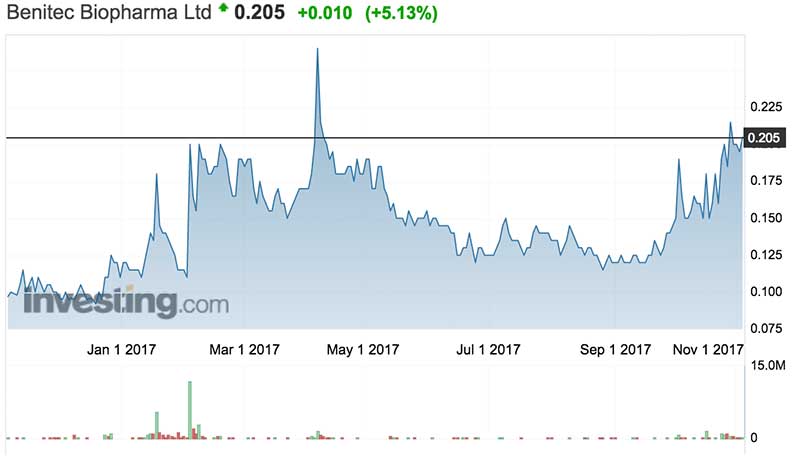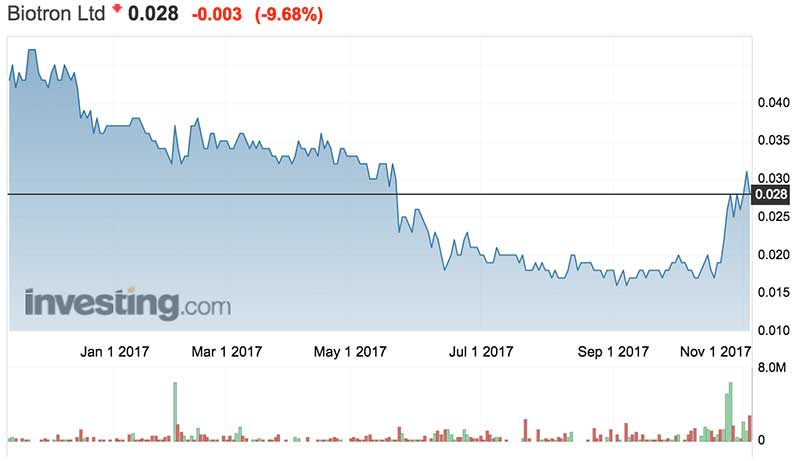Benitec and Biotron in the race for $3.5b Hepatitis B market

Pic: Oscar Wong / Moment via Getty Images
Chronic Hepatitis B, a currently incurable disease, is attracting growing attention among international biotechs.
The World Health Organisation estimates 257 million people live with Hep B and up to 900,000 die each year from related diseases such as liver cancer and cirrhosis.
In Australia, more than 232,000 people have chronic hepatitis B, according to lobby group Hepatitis Australia.
“Deaths from primary liver cancer have been climbing faster than any other cause of cancer death in Australia, with untreated chronic hepatitis B being a major contributor,” the group says.
New antiviral cures for Hep C may cause flare-ups of Hep B because they lack a key drug that helps immune systems fight off the infection.
Forrest Capital biotech analyst Anton Uvarov says the disease is “massive” now, with many smart US companies working on improved treatments and potential cures.
Benitec (ASX:BLT) and Biotron (ASX:BIT) are two ASX-listed companies competing in the race.
Benitec wants to treat Hep B with gene therapy treatment, for which it won a US patent last month. Its technology is still in the pre-clinical stages.

Biotron wants to cure Hep B via a mixture of regular treatment drugs and its own antiviral drug that target viroporin proteins — proteins that help release viruses from infected cells.
Results in 2014 from a small clinical trial in Bangkok for its Hep C drug were positive and it was rewarded by the market, rising 72 per cent to a year high of 11.7c.
But a Phase II trial held in Thailand in 2015, which saw better results in the control group than those being treated, sent its shares tumbling 78 per cent to 3.1c.

One analyst, who did not wish to be named, said the company needed to do its trials in a stricter regulatory environment than Thailand.
$3.5 billion market
The market for Hep B drugs could be worth around $US3.5 billion by 2021-22 according to consultancy Research and Markets.
China will remain the biggest major hepatitis B market over the next decade, rising from $US923 million in 2014 to more than $US1.4 billion by 2024, according to researcher GlobalData.
Big US companies such as Gilead, Johnson & Johnson and ContraVir are all working on a cure.
There is now a cure for Hepatitis C and Australia is on track to eradicate the disease by 2026, says the Kirby Institute.
But Biotron chief Michelle Miller says China represents a major opportunity because of its high Hep C co-infection rate.
Biotron is focusing on making a cheaper Hep C cure.
A lack of vaccinations mean many Hep B infections are spread from mother to child. There are around 90 million chronic carriers in China.
“The key there is this tsunami of liver cancer cases coming up with people with these cases of Hep B,” Ms Miller told Stockhead.
Biotron is working on a compound to take its Hep B drug into Phase II trials.
UNLOCK INSIGHTS
Discover the untold stories of emerging ASX stocks.
Daily news and expert analysis, it's free to subscribe.
By proceeding, you confirm you understand that we handle personal information in accordance with our Privacy Policy.








